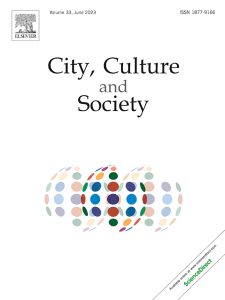How does place matter in circular/waste management transition?
Comparison of five European peri-urban regions
from the view of stakeholders’ perspective
City, Culture and Society – Volume 34, September 2023
Highlights
- Stakeholders’ perceptions represent their cultural embeddedness
- Circular economy transitions differ regionally and influenced by social factors
- Institutional, legal and governance aspects challenge waste management improvement
- In Central-Eastern Europe EU regulations are much less appreciated
The transition towards a circular economy (CE) has gained importance at multiple levels in the past decade (Varjú, 2020). The notion of CE is often depicted as the set of activities that reduce, reuse and recycle (Kirchherr, Reike, & Hekkert, 2017) and relies on effective waste management (as a first step). As the way out of ‘the source trap’ (Reike, Vermeulen, & Witjes, 2018), out of locked-in or path-dependent systems (Geels, 2018), the transition from the linear economy to CE requires broader engagement, empowerment, and breakthrough strategies. Both the transition of management (Wittmayer & Loorbach, 2016) and technology are important elements of a sustainability transition that includes ‘changes in user practices, regulation, industrial networks, infrastructure, and symbolic meaning or culture’ (Geels, 2002, p. 1257; in Williams & Robinson, 2020, p. 58).
Embedding sustainable behaviour in practice, routine, and cultural norms in institutions and other collectives is an essential element of the transition to sustainability. Changes in norms and values represent newly created peculiarities of a system and are captured by assessing and examining the changes in (collective) practices (Moore, King, Dale, & Newell, 2018; O’Brien, Sygna, Datchoua, Pettersen, & Rada, 2018), and examining actors’ roles, relationships, and agency (Avelino & Wittmayer, 2017; Schot & Kanger, 2018; in Williams & Robinson, 2020, p. 61). As numerous authors have pointed out, transitions are inherently boundary-spanning and affect multiple domains (e.g. social, political, cultural and technical) (Hölscher, Wittmayer, & Loorbach, 2018; in Williams & Robinson, 2020, p. 58).
This paper focuses on one important segment of this socio-technical system, the stakeholders and their engagements in waste management transition towards CE with a focus on peri-urban regions, as this is the scale where (public) waste management usually takes place, and where the circular transition can be realised (Tonini et al., 2020). To reveal these stakeholders and the engagements they have, the authors elaborated a comprehensive questionnaire survey to help identify the most important aspects of the potential barriers and permissive transition factors. Hence, this tested questionnaire is also a novel method that helps the understanding of the factors that drive stakeholders’ opinion.



